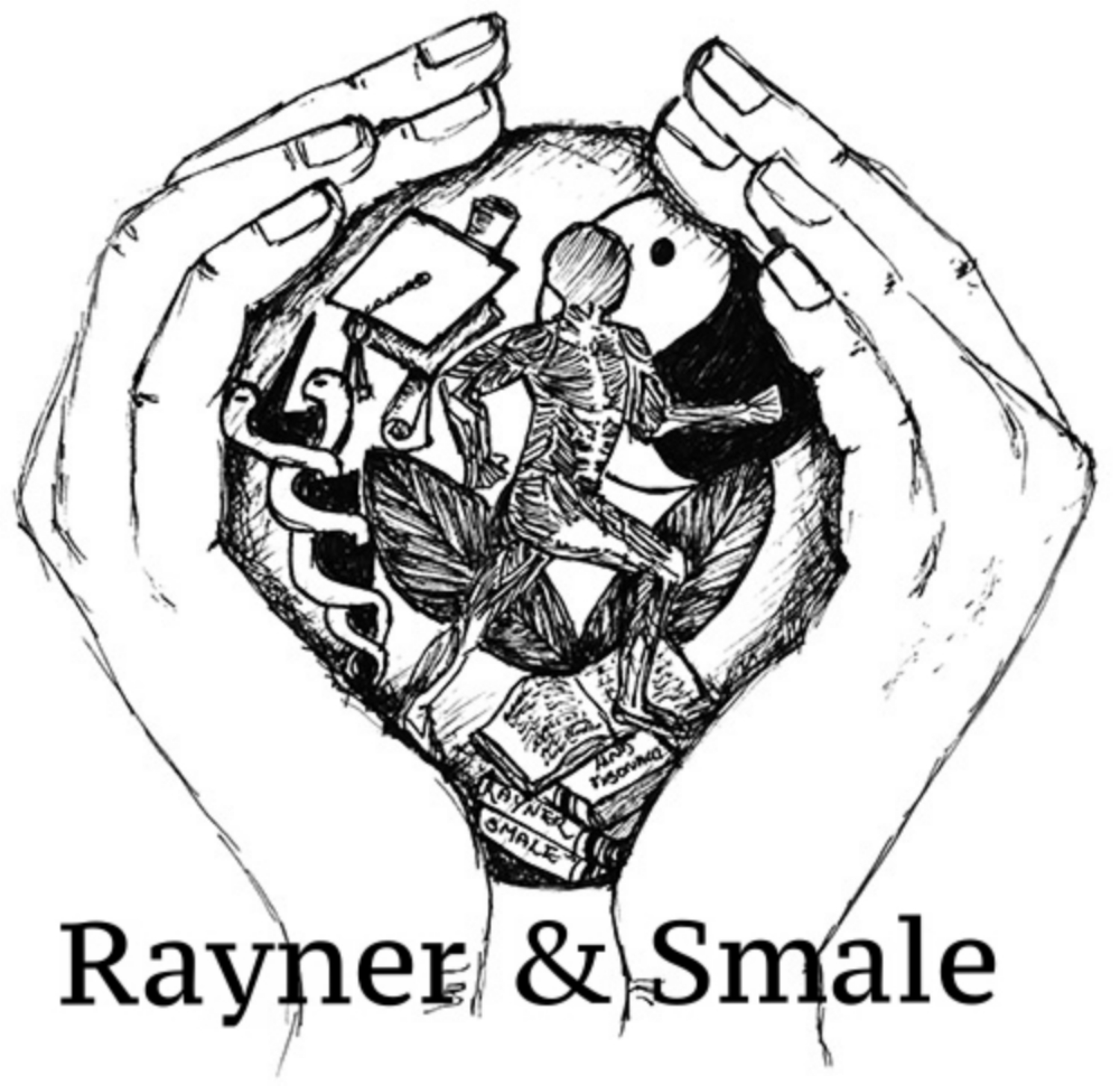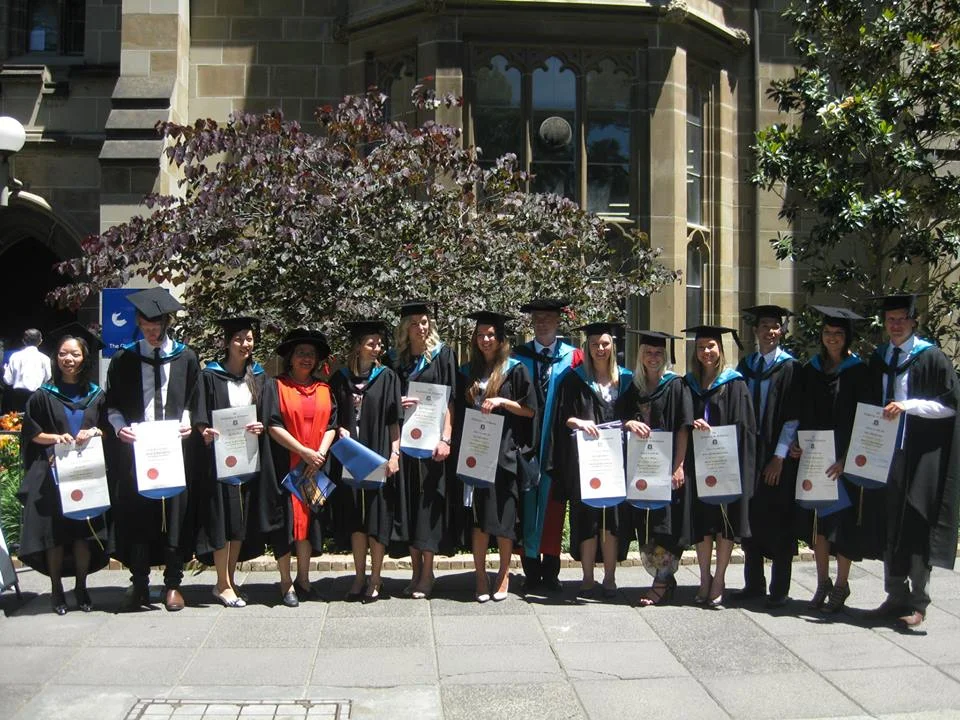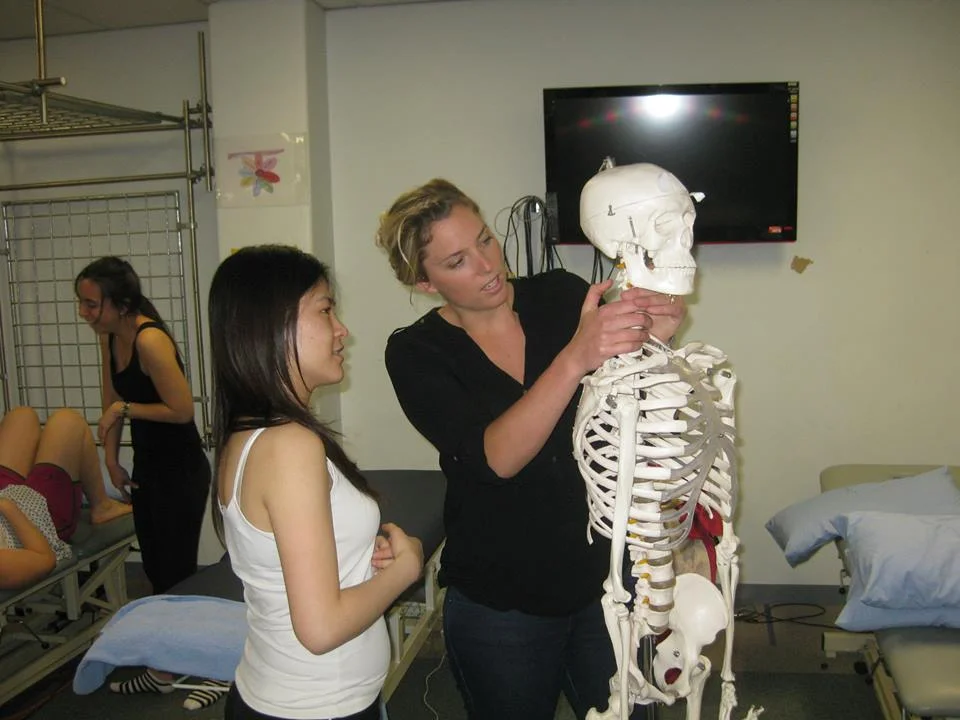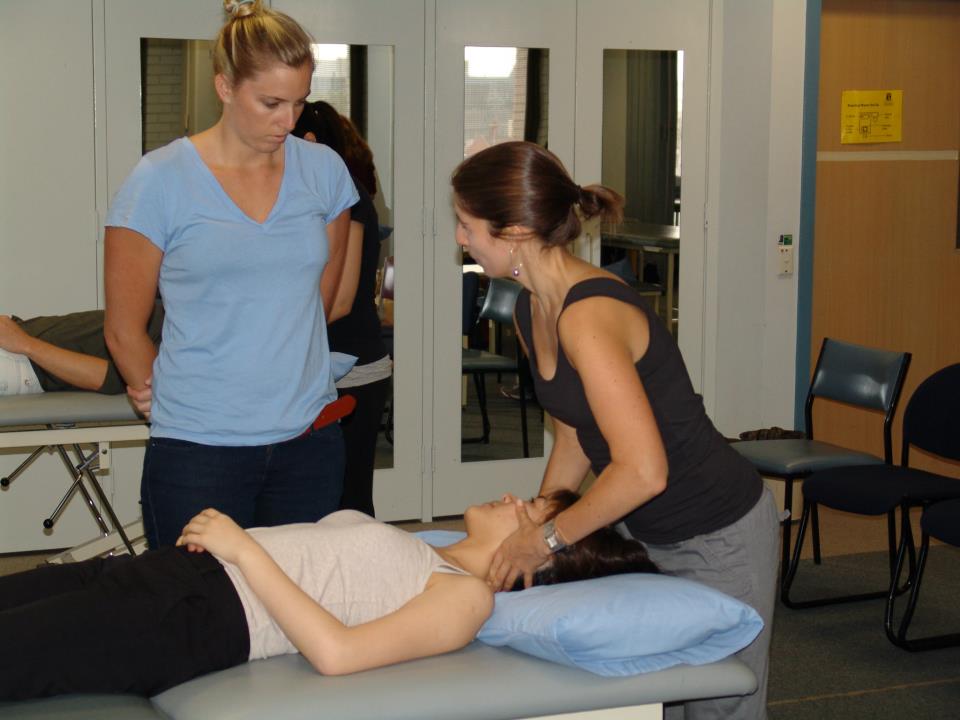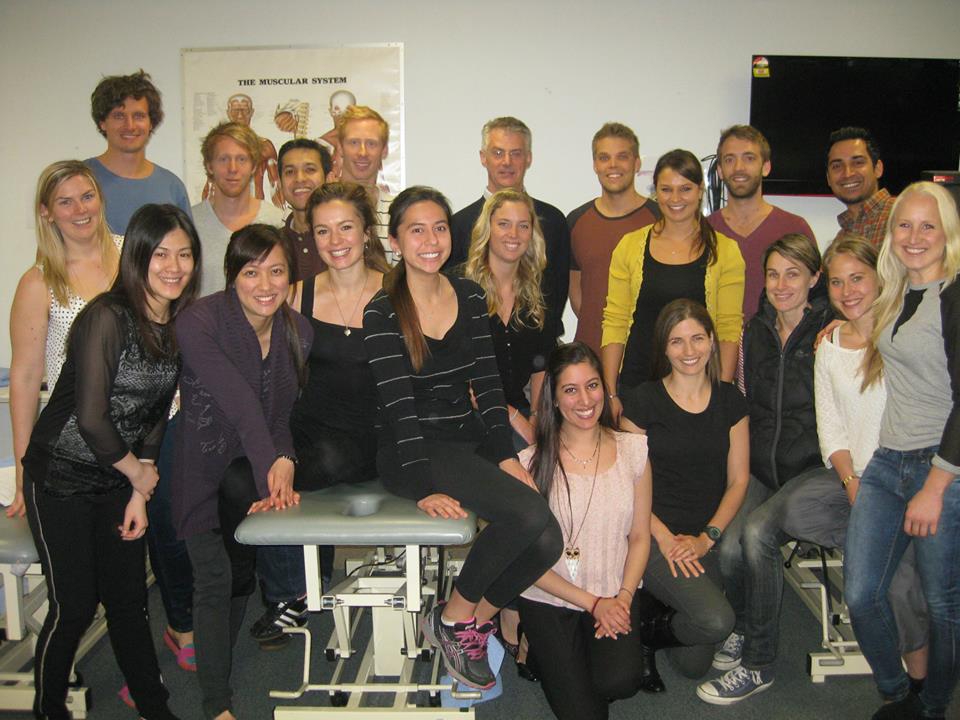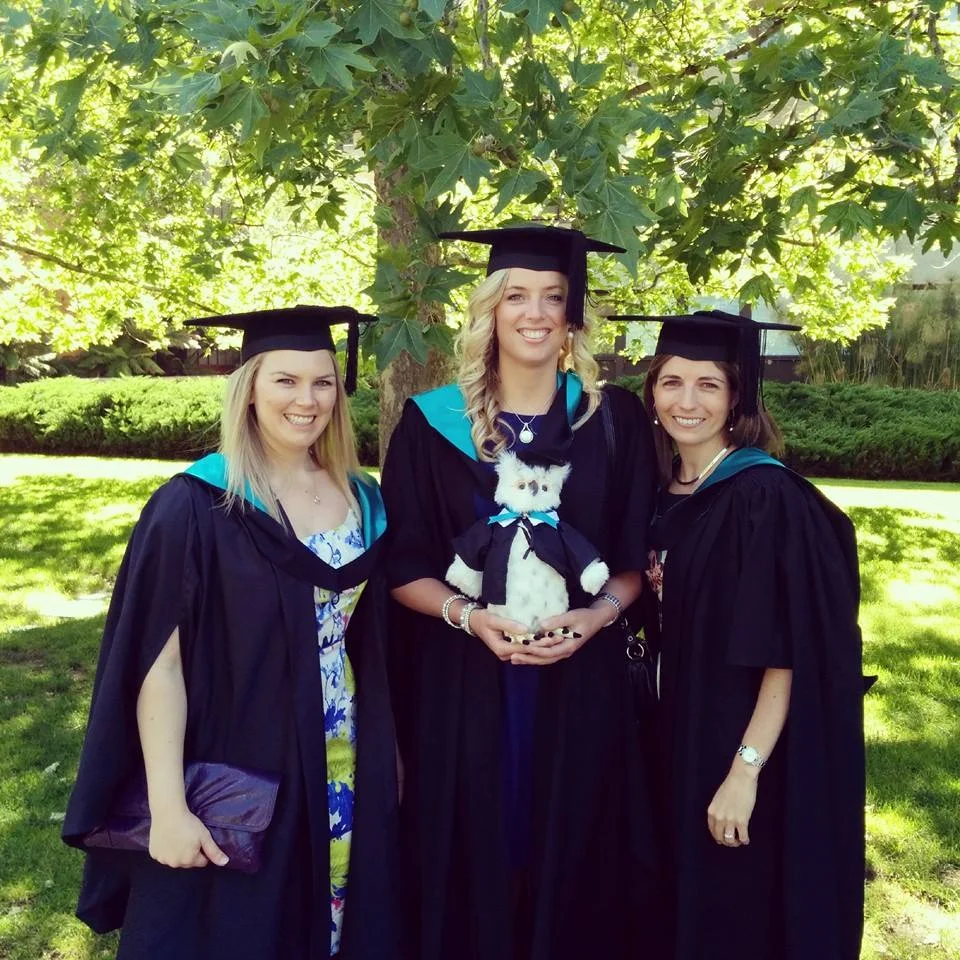My Journey through a Masters of Musculoskeletal Physiotherapy
I graduated with a Bachelor of Physiotherapy in 2009 and within my first year as a graduate physiotherapist, I made the switch to private practice.
I am fortunate to work in a clinic where nine other physios had completed their masters degrees and it was clear to me that it was the path I needed to follow in order to continue learning and hopefully, one day, share the same knowledge and clinical skills as my peers and colleagues.
So I applied to study my Masters in Musculoskeletal Physiotherapy at Melbourne University, as I felt the structure of the course better suited my learning style.
On my first day we were addressed by Dr. Guy Zito (Course Coordinator) who asked a simple question "What do you hope to achieve from completing this course?".
I don't remember anything beyond that question because I became aware and fixated on the realisation that I had not set any expectations. So I spent the remainder of the lecture creating the expectations below:
- Become more creative with my approach to patient management.
- Enhance my manual handling skills.
- Learn to be an effective researcher and critically analyse the evidence.
- Develop excellent clinical reasoning and evidence based practice.
- Revise and expand kinesiology and anatomy knowledge to enhance my clinical assessment.
- Improve my general principles of assessment and treatment of musculoskeletal conditions.
When I look at that list I realise that these goals were very broad, and yet I achieved them all, which for me was an accomplishment.
It is hard to quantify the amount I learnt in two years and how different my clinical reasoning, hands-on skills and knowledge were at the completion of the course. I do know that the change was dramatic and I was surprised just how quickly I was able to learn and adapt if I was open to change and different ways of thinking.
Perry, Green & Harrison (2011) wrote an article on the changes which occur during a masters degrees and propose the following skill acquisition model, which I will use to describe my personal journey:
- Expectancy
- Incredulity
- Deconstruction
- Reconstruction
- Actualisation
The first step expectancy, generally occurs prior to commencing the course when therapists 'reach a point in their careers where they recognised that their future development would only occur if they challenged the limitations of their position on the career ladder' (Perry, Green, & Harrison, 2011, p. 287). Incredulity occurs after beginning the course when you realise what level of expertise is demanded and expected of you, and the degree of sacrifice which will need to occur in order to succeed. "The participants also described feelings of insecurity and a sense of exposure that was most often related to the fear of failure both in terms of the assessment components of the program but also at home in relation to balancing academic workloads with family commitments" (Perry, Green, & Harrison, 2011, p. 287).
The first two stages weren't that bad in my experience. I had prepared myself that I was going to be in a position where I felt I knew nothing and just needed to stay focused and motivated to learn. I expected that it would be hard and I decided that I would try not to sacrifice important things in my life such as socialising with my family and friends, getting enough sleep and continuing to exercise and eat well. This is where I was naive and landed up being overloaded and sick within the first five weeks. Slowly I learnt to accept the sacrifice and allow for it to happen. My final semester was my best. I focussed on sleep, exercise, uni and work and if there was time for anything else, that was a bonus. I finished knowing I had given it my all and would have no regrets. I also managed to get through 2013 without missing a day due to sickness.
Deconstruction was awful. It only really occurred in my second year as I commenced my clinical placements. Everything I thought I knew about patient assessment and management was challenged, every skill was critiqued and every error was highlighted as a way of learning. It was the first time since graduating that I re-entered the environment of being watched and critiqued with patients. At times I felt I knew nothing at all and my confidence became non-existent.
There are two phrases that my clinical supervisors repeated, which became embedded in my thinking process "It is not about what you know, it is about what you can prove" and "that is an assumption, Sian, show me the evidence". It was so confronting to at times admit that I really was making assumptions without using my assessment asterisks and subjective questioning to really prove and disprove my theories. Not often were my assumptions very far off the correct hypothesis, but I realised my clinical reasoning process was lacking and this is where I began to focus my study.
Deconstruction describes the time when your understanding of the world and physiotherapy is challenged. People (myself included) often experience 'cognitive disorientation, feelings of isolation, insecurity and self-doubt that undermined all areas of their lives and made them feel intellectually vulnerable' (Perry, Green, & Harrison, 2011, p. 287). My deconstruction phase lasted nine weeks, which was most of semester 1. In retrospect I now see that it was the first time I had ever experienced such a strong process of change and one of my hardest challenges yet. The deconstruction phase ended when I stumbled across this article, which allowed me to understand that my experience was normal and critical for any future development.
Once I accepted that it was a process of learning, I quickly found myself moving into the fourth stage of learning, reconstruction. I loved this part. I threw myself into learning and reading and reviewing my own work and suddenly I found myself learning again and it all started to click. I know this is also due to the wonderful mentoring I gained from Christine Frith, one of many fantastic clinical supervisors at Melbourne University, but one who seemed to understand my learning and thinking style and was able to guide me past my insecurities and re-develop confidence. I am grateful to all my teachers who all have a very difficult job yet everyone made such an effort to develop me as an individual.
In the reconstruction phase my sensitivity in handling, ability to monitor multiple asterisk signs, change and develop patient treatments, and clinical reasoning improved the most. I was able to learn to answer two things about my patients:
- What their primary hypothesis was, using multiple asterisks to prove my thinking.
- Decide whether or not the patient was suitable for physiotherapy and what my role would be in helping them.
I learnt to know when I couldn't help, when the condition wasn't suitable for physiotherapy, and when further assistance from other disciplines was required. Knowing the boundaries of my knowledge and skills was very empowering.
The final stage of learning and skill acquisition is actualisation. A phase described in this model to involve both professional career progression, and internal recognition of the new skills which have been gained and 'an enhancement in the ability of the person to problem-solve complex clinical cases, to focus on multiple issues and to better reason especially where information was either absent or ill-defined' (Perry, Green, & Harrison, 2011, p. 289). I believe I am still in the stage of actualisation and I know that the first year after completing a masters is the prime time to consolidate and practice my new skills.
On reflecting on the changes which have occurred, I would emphasise the following as a part of my personal journey.
- Development of a clinical reasoning process which can be applied to all musculoskeletal assessments.
- Improved understanding of a thorough musculoskeletal assessment and how to adapt this to both spinal and peripheral problems.
- Enhanced manual handling skills, sensitivity of handling and confidence with manipulations.
- Broadened knowledge of evidence-based practice for injuries which I didn't see a lot of previously.
- Made new friendships with my peers.
- And most importantly a drive and passion to continue learning and motivating others around me to learn.
This blog is a component of that continual learning, development and sharing of my newly acquired skills and knowledge. It was an amazing journey and definitely the hardest challenge I have ever undertaken. I would encourage any physio to undertake post-graduate studies because it completely changed my career path and dedication to my profession.
Sian
References
Perry, J., Green, A., & Harrison, K. (2011). The impact of Masters education in manual and manipulative therapy and the ‘knowledge acquisition model’.Manual therapy, 16(3), 285-290.
